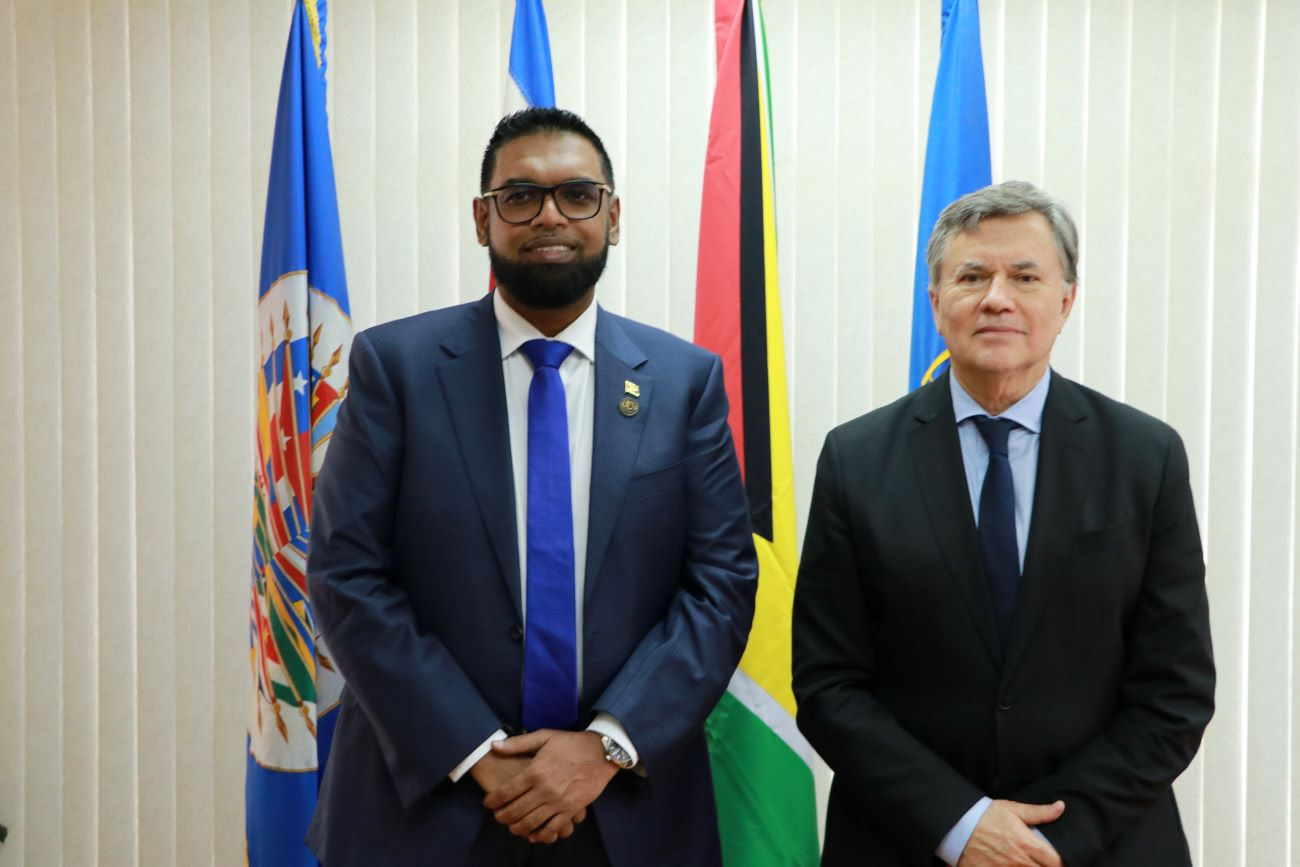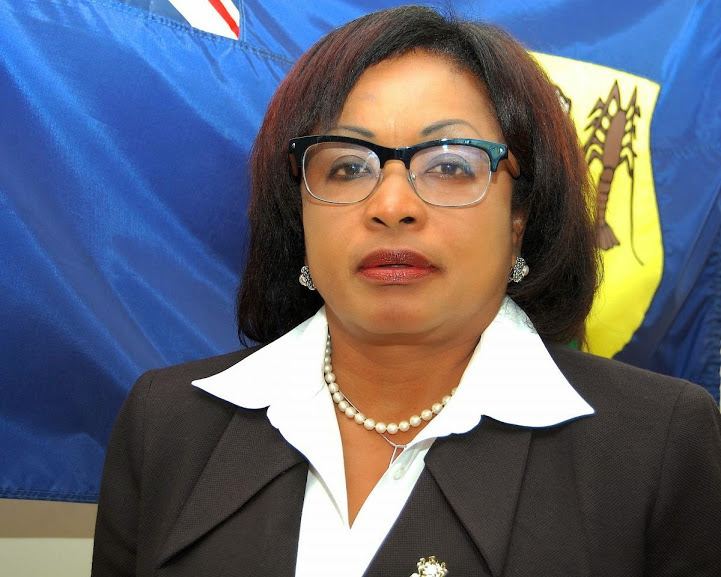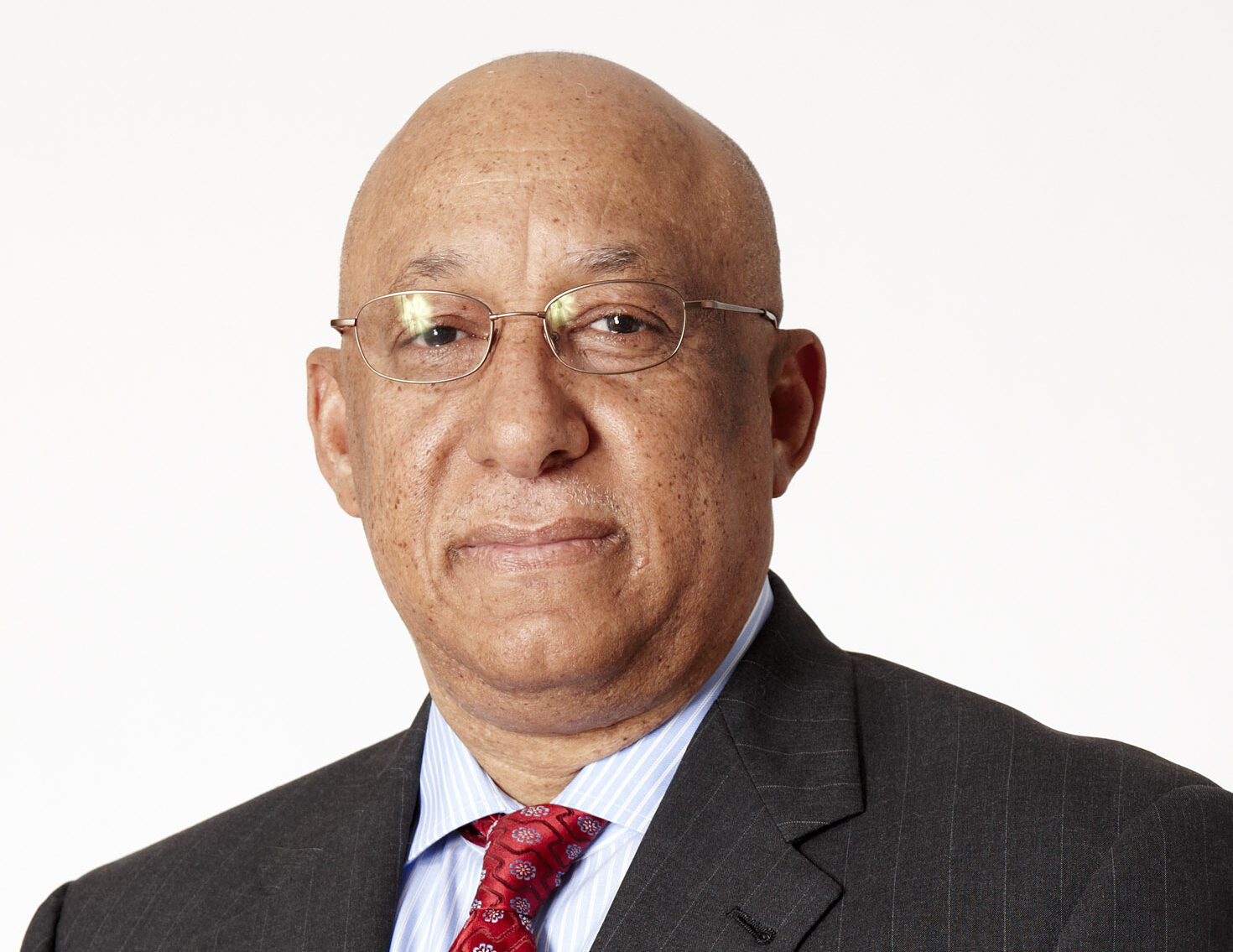In Georgetown, the President of the Cooperative Republic of Guyana, Mohamed Irfaan Ali, received the Director General of the Inter-American Institute for Cooperation on Agriculture (IICA), Manuel Otero, who expressed his agency’s support for the objective that Guyana and the other Caribbean nations have set themselves of reducing their multimillion-dollar food import bill by 25 per cent by 2025.
The Head of State -who last October took part in the Conference of Ministers of Agriculture of the region held at IICA’s Headquarters in San José, Costa Rica- discussed with Otero Guyana’s progress towards achieving more resilient and sustainable food production.
“As I see it, Guyana can play a key role in providing food, initially for the rest of the Caribbean and, in the medium term, probably, for the rest of the world,” Otero said.
“Guyana has in its favor large areas of arable land and tropical conditions, so with more investment it can make steady progress towards sustainable development. It’s a question of training farmers and incorporating science and innovation, through technologies tailored to the country’s productive characteristics. I listened closely to the challenges that President Ali mentioned, and I have no doubt that Guyana has the determination to intensify its traditional agriculture in a sustainable way, to make a leap in productivity,” the IICA Director General added.
During his visit to Georgetown, Otero also met with Guyana’s Minister of Agriculture, Zulfikar Mustapha, and Carla Barnett, Secretary General of the Caribbean Community (CARICOM), and took part in an FAO conference.
In 2022, Mustapha was one of the first ministers of agriculture in the region to pledge his country’s support for the hemispheric partnership proposed by IICA to tackle growing threats to food security in the Americas.
Barnett, who heads a community of mostly food-importing countries, signed an agreement last August to prioritize the joint actions of CARICOM and IICA in the Caribbean, aimed at strengthening the food and nutrition security of the population and the climate resilience of the agriculture sector.
The goal of self-sufficiency
Otero explained that President Ali and Minister Mustapha gave details of the progress made in terms of productivity and sustainability, with the Caribbean aiming to be self-sufficient in the production of commodities, including corn and soybean, by 2026.
“We all accept that marketing systems need strengthening to ensure the provision of food to vulnerable remote areas. The Caribbean region has transportation problems; it is not easy to move produce from one country to another or within any given country. Farmers know how to do things and are successful, but more investment is needed in areas such as transportation and logistics,” Otero pointed out.
The IICA Director General also praised Guyana’s goal of having 35 per cent of agricultural establishments run by women and young people.
“Young people and women are destined to play a decisive role in this new era of agriculture, with more technology and innovation. We must find ways of getting them more interested in rural activities, and at IICA we can help. It’s a slow process, but I’m optimistic about the determination of the new generation and women to play a leading role,” Otero remarked.
The IICA Director General said the Caribbean was highly vulnerable to the impact of climate change, as were other parts of the continent, including the Central American Dry Corridor, the Andean countries, and even Argentina, which has recently been experiencing severe droughts. “More than ever, agriculture is exposed to climate factors, and needs to forge ahead with its transformation process in order to be more resilient,” he concluded.
Otero visited Guyana with his Special Advisor, Jorge Werthein, and in the interviews that he gave in the country he was also accompanied by IICA’s local Representative, Wilmot Garnett, and the Institute’s coordinator for the Caribbean Region, Curt Delice.




